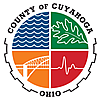National Minority Health Month – Improving Health Outcomes for Minorities
April is National Minority Health Month (NMHM), a time to raise awareness about health disparities that affect racial and ethnic minority populations and encourage action through health education. The month has its genesis in National Negro Health Week, established by Booker T. Washington in 1915. Organizations across the U. S. utilize this month to highlight programs and activities that promote healthfulness in minority communities with the goal of reducing disparities.
Cuyahoga County’s Department of Health and Human Services (DHHS) is taking steps to improve minority health outcomes. Specifically, we’re focused on concerns like lead, infant mortality, social isolation and the pandemic, issues which are having an impact on our youth and older residents. This work has been bolstered by Executive Budish’s Citizens Advisory Council on Equity (CACE) report, published in January 2021, which laid the groundwork for focusing on racial equity in the following areas:
- Health and Healthcare
- Economic Opportunities
- Equitable Quality of Life
- Criminal Justice
Our divisions are researching new ways to incorporate Racial Equity and Inclusion (REI) into our practices, particularly with regards to the first focus area – health and healthcare. The Division of Senior and Adults Services (DSAS) and the Office of Early Childhood (Invest in Children) are two examples of how we’re prioritizing racial equity to improve health outcomes for our minority residents.
The Division of Senior and Adult Services has leaned into its work addressing racial equities in services to older adults. As COVID-19 vaccine opportunities emerged, DSAS ramped up communications to clients and seniors in minority neighborhoods to ensure they are aware of the availability and importance of being vaccinated. The team is making weekly automated phone calls and texts, sending weekly emails, and mailing postcards to disadvantaged residents to help them take advantage of the life-saving vaccines.
DSAS is also leading a partnership with the Cleveland Clergy Alliance and community centers throughout the County to provide vaccine registration and transportation assistance to older adults. Many older residents trust their local clergy and community center staff, so they are more apt to reach out to them when they need assistance.
DSAS is also using social platforms to create dialogue around disparities. Last Friday, it hosted a Facebook Live session, “COVID-19 One Year Later: How Elders of Color are Faring,” with Director of Nursing, David Smith, and special guest Dr. Lynn Milliner of MetroHealth Express Care. Dr. Milliner shared her perspective on health issues facing minorities, especially now during this pandemic. She discussed how people of color can overcome the negative effects of health disparities, find trusted resources for information, and improve their physical and mental well-being. If you missed the discussion, you can watch it on our Facebook page.
Other initiatives in the works at DSAS are a telehealth wellness program and a free computer distribution program with partners, PCs for People, Digital C and Ashbury Senior Computer Community Center. Many elders of color do not have access to technology, which makes staying connected to their doctors, community and loved ones a challenge. The computer distribution program seeks to remove this barrier.
“Older adults who register for a free computer can also be connected to training on how to use their device so they can connect with medical providers to maintain their health while social distancing,” said Denise Rucker-Burton, DSAS’ program administrator who is leading the computer distribution. “Once they have training, we can connect them with their local community center for virtual programming to reduce social isolation, which is equally important to their well-being.”
With a focus on minority youth, the Cuyahoga County Office of Early Childhood (Invest in Children) is working to achieve equity in access to services and eliminate racial and ethnic disparities in child and family outcomes. Later this month, we’ll share information on how the agency’s funded programs are reducing infant mortality, empowering new parents, supporting early literacy and improving kindergarten readiness for young children across the county.
All residents deserve to be healthy, happy and thriving. We are continually looking for ways to remove barriers, create access and build trust so that our minority residents feel safe, supported and connected in our community.

